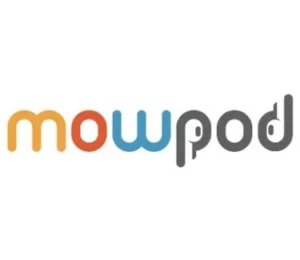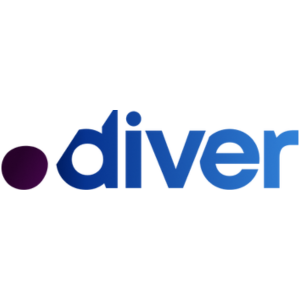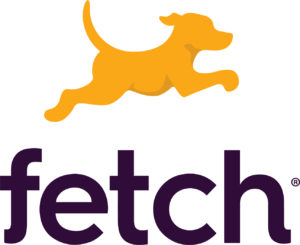LISTEN IN A POD APP
Filters
Paul Meinshausen | Aampe
Why A/B testing will be extinct in 3 years — Paul Meinshausen // Aampe
Paul Meinshausen, CEO and Co-Founder of Aampe, explores the impact of AI’s disruption. A/B testing allows marketers to compare two options and learn from the differences between them. However, as marketing strategies become more intricate and the diversity of user preferences grows, A/B testing's manual approach may not be sufficient. Today, Paul discusses the future…
Play PodcastPaul Meinshausen | Aampe
How AI is disrupting lifecycle marketing — Paul Meinshausen // Aampe
Paul Meinshausen, CEO and Co-Founder of Aampe, explores the impact of AI’s disruption. From chatbots and virtual assistants to content generation, AI has revolutionized how businesses understand and interact with their customers. Moreover, AI is enabling businesses to personalize marketing efforts at a granular level, tailoring interactions based on each person's unique preferences and behaviors.…
Play PodcastChris Voce | G2
Tips for B2B software marketers — Chris Voce // G2
Vice President of Market Research at G2, Chris Voce, dives into B2B software buying and how it affects marketers. B2B software buyers today are more self-reliant than ever before and prefer not to engage with sales until the final stages of the funnel. Marketers must adapt by delivering precisely what customers want, providing detailed information…
Play PodcastChris Voce | G2
5 factors shaping B2B software buying — Chris Voce // G2
Vice President of Market Research at G2, Chris Voce, dives into B2B software buying and how it affects marketers. B2B software buying has undergone transformative changes, influencing the way businesses approach technology investments. Understanding the factors driving these changes is essential for marketers seeking success in this competitive environment. Today, Chris discusses the five factors…
Play PodcastElizabeth Cholawsky | HG Insights
The Acquisition-to-Growth playbook — Elizabeth Cholawsky // HG Insights
Elizabeth Cholawsky, CEO of HG Insights, delves into how to unleash the potential of technology intelligence. When it comes to growth, companies must strategically leverage various tools and approaches to stay competitive and thrive in a rapidly evolving market. Mergers and acquisitions (M&A) enable B2B companies to expand their market reach, diversify their offerings, and…
Play PodcastElizabeth Cholawsky | HG Insights
Displacing competitors through product launches — Elizabeth Cholawsky // HG Insights
Elizabeth Cholawsky, CEO of HG Insights, delves into how to unleash the potential of technology intelligence. In the context of today's B2B space, it is critical that companies innovate with their products. However, figuring out where to innovate requires data-driven insights and analysis to identify market fit, understand customer needs, and stay ahead of competitors.…
Play PodcastElizabeth Cholawsky | HG Insights
Technology Intelligence Data-driven decision-making — Elizabeth Cholawsky // HG Insights
Elizabeth Cholawsky, CEO of HG Insights, delves into how to unleash the potential of technology intelligence. When HG Insights coined the term technographics13 years ago, it was narrowly defined as a technology installation at a company. Fast forward to the present and technology intelligence is helping businesses gain insights into market trends, competition, empowering decision-makers…
Play PodcastRonald C. Pruett, Jr. | The Boston Associates
Live Commerce strategies for brands & influencers — Ronald C. Pruett, Jr. // The Boston Associates
Ronald C. Pruett Jr, Managing Partner at The Boston Associates, explores the potential of live commerce on television for eCommerce brands. In the realm of live commerce, brands are becoming content creators and influencers are turning into brands. While there are multiple paths to success in this landscape, it is crucial for both brands and…
Play PodcastJuan Mendoza | The MarTech Weekly
Beware of the Grifterverse — Juan Mendoza // The MarTech Weekly
Juan Mendoza, Founder and Editor of The Martech Weekly, talks about this month's martech news. The rise of online platforms and the accessibility they offer has brought about a significant increase in online fraud and the emergence of what can be termed the "grifterverse." The pervasive nature of online fraud poses a significant challenge for…
Play PodcastSebastian Hamann | Shopware
The AI industrial revolution of ecommerce — Sebastian Hamann // Shopware
Sebastian Hamann, Co-Founder and Co-CEO at Shopware, explores how artificial intelligence is impacting eCommerce. AI is revolutionizing the world of eCommerce by injecting excitement and innovation into the shopping experience. In addition to the benefits for consumers, AI is helping eCommerce owners be more efficient and enabling them to provide more personalized shopping experiences to…
Play PodcastAbout Business Class: B2B
What is B2B (Business to Business)?
B2B or business-to-business refers to products and services that are designed, built, and marketed specifically for other businesses.
The Difference Between B2B and B2C (Business-to-consumer)
The main difference between B2B and B2C (Business-to-customer) is that B2B covers transactions that are done between companies as opposed to B2C, which categorizes transactions between a business and an individual customer.
B2B Marketing vs B2C Marketing
Many B2B marketers would argue B2B marketing is more complex than B2C marketing. Each market type has its own complexities.
Unlike B2C sales and marketing, which is oftentimes targeted toward persuading an individual customer to purchase a product or service, B2B sales and marketing are targeted toward convincing multiple customers such as an entire company and its stakeholders.
In the case of sales of B2B products and services, you not only need to convince the main decision-makers or buyers like the C-suite staff, but you also have to convince them that the entire department or company will benefit. Unlike most typical B2C businesses, the buyer in a B2B business is not the only one impacted by a purchase. It's oftentimes the entire company.
Faced with this challenge, many B2B companies focus heavily on generating high-quality B2B leads and ensuring their journey through the funnel is as efficient as possible to drive sales.
Apk Ticket blog is dedicated to delivering you the best news about your Android devices. We're also committed to helping you find all of the features and applications that you need to live your best life
How to generate B2B Leads & Sales
- Develop a Content Marketing Strategy:
- Create a strong B2B content marketing strategy that adds value to potential buyers, increases lead generation, and drives sales.
- Optimize your B2B Website:
- Set up your B2B website to a self-service where website visitors can be educated and B2B buyers are given the information needed for the decision-making process. Many B2B eCommerce websites have done this very well (e.g. Alibaba.com) where B2B customers can browse and purchase directly from the website.
- Offer a Free Trial:
- Offer a free trial period to new B2B customers. This permits them to use the product or service in the context of their business risk-free and helps potential customers make a decision if they are unsure. When businesses can easily see the impact your product or service has on their operations, you're more likely to obtain more sales.
- Provide Tutorials:
- Create a thorough tutorial system in order to guide the buyer through the product or service so that implementation is as smooth as possible.
B2B in the MarTech World
When people think of B2B, many think of it in the context of a traditional supply chain where a company making a physical product is purchasing components and raw materials from another company in order to sustain its manufacturing process.
The reality is that B2B exists in the digital world in much the same way that it exists in the physical world. Many of the stakeholders in corporate companies and start-ups rely on software built by other businesses in order to build their own digital products or services.
The combination of these various B2B MarTech tools is called their B2B MarTech stack.
How to build a B2B MarTech Stack
If you're building a B2B MarTech stack, there are a few categories that need to be covered. These include:
- Customer Relationship Management (CRM)
- Tracking relationships across your sales and marketing departments is essential. Your customer relationship management tool is key to doing so in order to nurture and convert B2B customers at various touchpoints. Consider using tools like Hubspot CRM, Salesforce, or SAP CRM.
- Marketing Automation
- With the evolution of data collection, consumers today expect more than just cookie-cutter ads that can apply to a large group of people. They want personalization. Nowadays, marketing automation tools like HubSpot, Marketo, and Pardot offer AI and machine learning feature to make it easier to personalize your communication.
- Content Marketing Management
- Content has been king and remains king. A robust content marketing management system is essential for a B2B marketing strategy. The best-in-class platforms offer a combination of workflow management, editorial calendars, and an array of features that make publishing content easy and efficient. Tools we recommend include Contently, DivvyHQ, and Kapost.
- Customer Data Platforms
- "Data is the new oil," is a common phrase marketers have encountered throughout the industry. Given its value, the unification and analysis of customer data should definitely be a priority for your company. Customer data platforms include tools like Segment, Optimove and Exponea.
The Importance of MarTech in B2B
By itself, B2B marketing is a relatively difficult task given it requires persuading a collection of people, such as teams and departments, at a time in order to make a sale. However, when put into the context of the present-day marketing and advertising industry, the rise in ad-blockers and the general disdain consumers have when it comes to being marketed to on social media and search, we see that executing B2B marketing end-to-end is growing increasingly difficult.
With negative sentiments surrounding advertising increasing, it's clear B2B marketers need to revise their approaches, and that approach is personalization.
In order to facilitate personalization, B2B marketers use MarTech tools, which help them access, organize, analyze, unify and action the data. The ability to personalize their marketing in this way allows them to craft outreach messages, nurture campaigns and calls-to-action that customers actually relate and respond to.
If you're interested in learning more about B2B, B2B marketing, B2B companies and B2B sales, check out the episodes listed below from the MarTech podcast.
They include interviews with marketers and influencers in the B2B MarTech industry who share their advice, strategy, and the best B2B tools on the market.
Read MoreRead Less
Sponsors of the MarTech Podcast



































